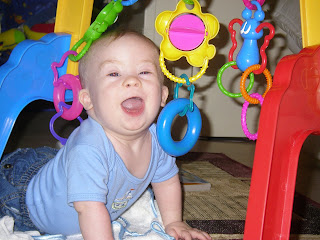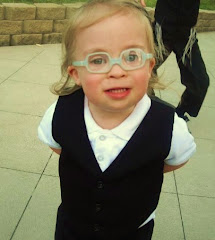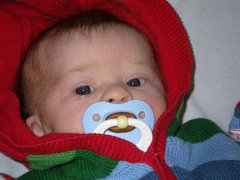She wrote a famous piece that has inspired and encouraged countless parents of special children. I am honored to present that piece to you.
I am often asked to describe the experience of raising a child with a disability - to try to help people who have not shared that unique experience to understand it, to imagine how it would feel. It's like this...
When you're going to have a baby, it's like planning a fabulous vacation trip - to Italy. You buy a bunch of guide books and make your wonderful plans - the coliseum, the Michelangelo David and the gondolas in Venice. You may learn some handy phrases in Italian. It's all very exciting.
After months of eager anticipation, the day finally arrives. You pack your bags and off you go. Several hours later the plane lands and the stewardess comes in and says, "Welcome to Holland".
"Holland?!?" you say, "What do you mean "Holland"??? I signed up for Italy! I'm supposed to be in Italy. All my life I've dreamed of going to Italy!"
But there's been a change in the flight plan. They've landed in Holland and there you must stay.The important thing is that they haven't taken you to a horrible, disgusting, filthy place, full of pestilence, famine and disease. It's just a different place.
So you must go and buy new guide books. And you must learn a whole new language. And you will meet a whole new group of people you would never have met.
It's just a different place. It's slower-paced than Italy, less flashy than Italy. But after you've been there for a while and you catch your breath, you look around…and you begin to notice that Holland has windmills...Holland has tulips. Holland even has Rembrandts.
But everyone you know is busy coming and going from Italy...and they're all bragging about what a wonderful time they had there. And for the rest of your life, you will say "Yes that's where I was supposed to go. That's what I had planned".
And the pain of that will never, ever, ever, ever go away...because the loss of that dream is a very significant loss.But...if you spend your life mourning the fact that you didn't get to Italy, you may never be free to enjoy the very special, the very lovely things...about Holland.
© 1987, by Emily Perl Kingsley. All rights reserved.
Here is the author with Mendele:
"Hi, I'm Emily. I'm proud to be Jason's mom. I congradulate you on little Mendele who is going to be (he is already wonderful and he's just going to continue to be) more and more wonderful. Just keep loving him, stimulating him and giving him as enriched an environment and a life as you can and he'll be a joy to you and your whole family."
"We're very happy that you're here and had an opportunity to meet Mitchell and Jason and get a sense of the road ahead. We hope that you have a very happy life and enjoy every day to the fullest."
Mitchell's father Jack Levitz with Mendele:



 Jason and his Housemates, "The Three Musketeers".
Jason and his Housemates, "The Three Musketeers".





























